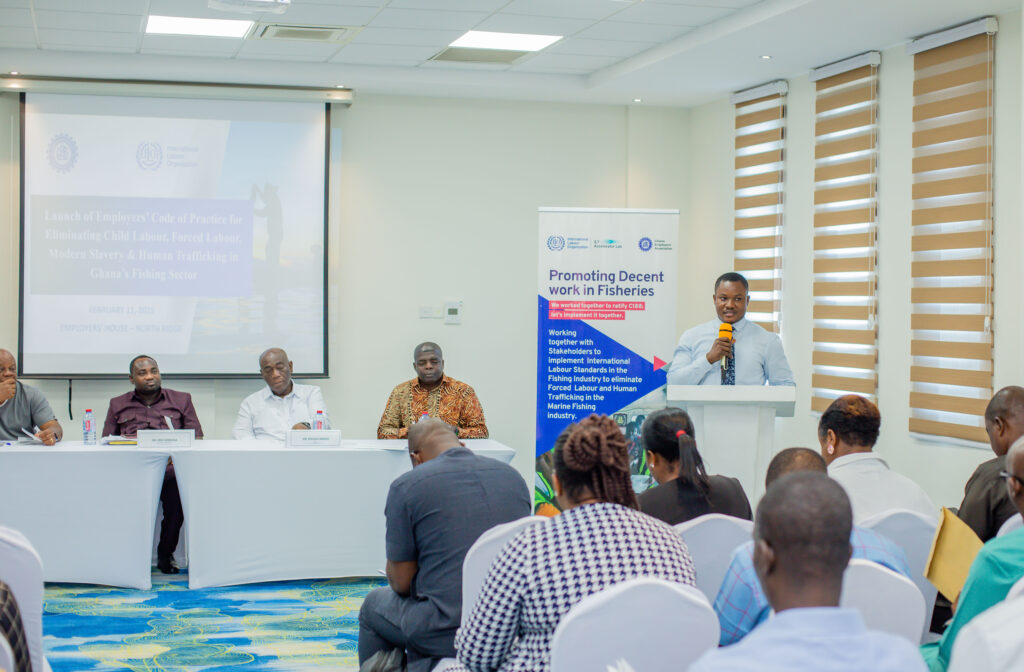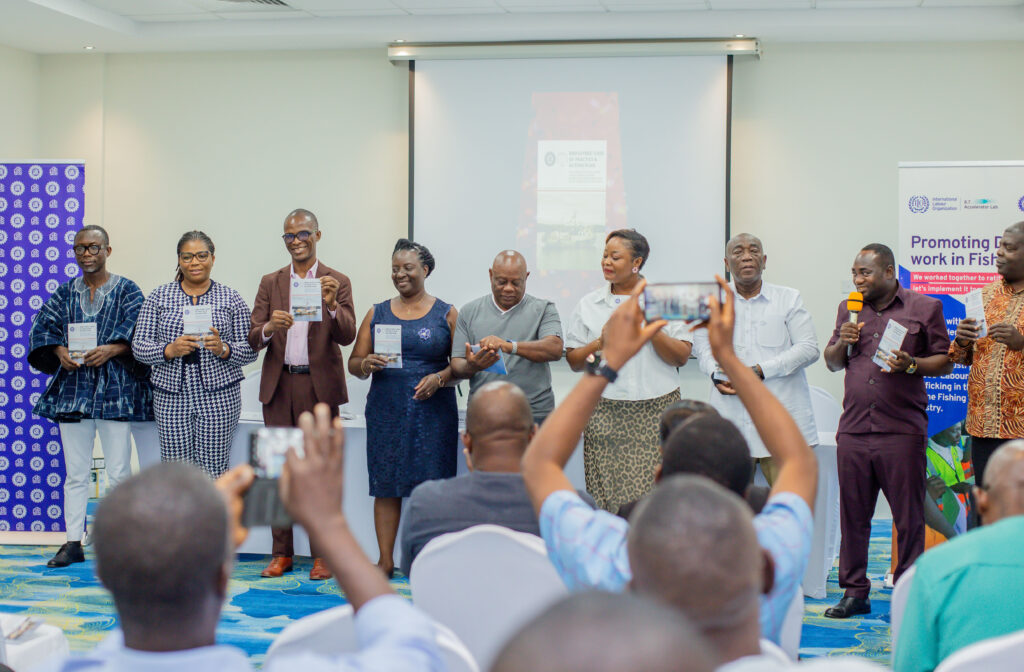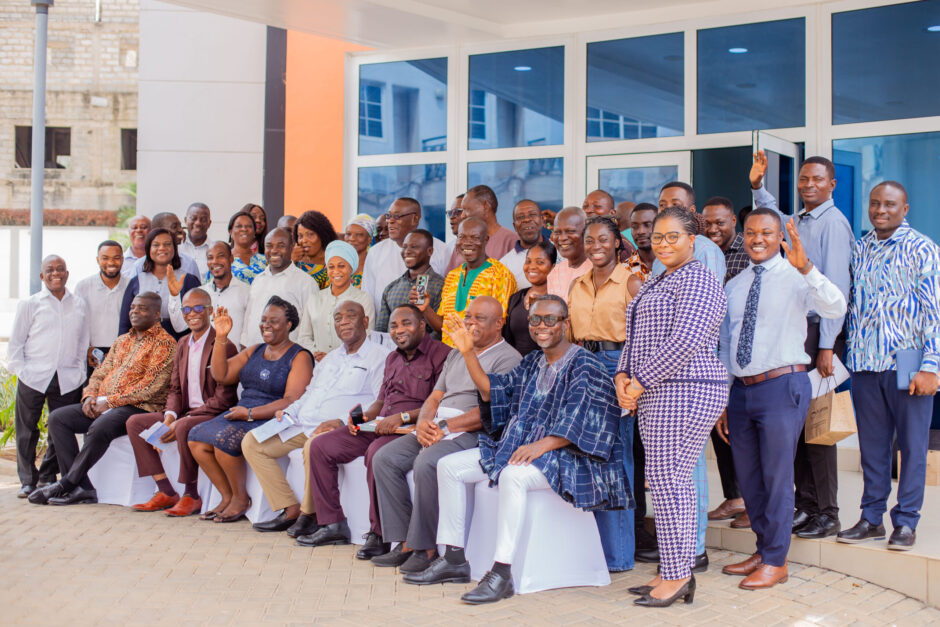GEA Launches Code of Practice to Eliminate Child Labour and Forced Labour in Ghana’s Fishing Sector
The Ghana Employers’ Association (GEA), in collaboration with the National Fisheries Association of Ghana (NAFAG), International Labour Organization (ILO) and other key industry stakeholders, successfully launched the Employers’ Code of Practice for Eliminating Child Labour, Forced Labour, Modern Slavery, and Human Trafficking in the Fishing Sector of Ghana. The historic event took place at the Employers’ House in North-Ridge, Accra, reinforcing the commitment of employers and industry players to fostering ethical and sustainable labour practices in the fishing sector of Ghana.
The launch event brought together representatives from various trade associations in the fishing industry, government agencies, trade unions, development partners, and civil society organizations, all united in their mission to combat exploitative labour practices in Ghana’s fishing industry.
In his welcome address, the Chief Executive Officer of GEA, Mr. Alex Frimpong, emphasized the urgent need for structured interventions to protect vulnerable workers and ensure responsible labour practices. He commended all stakeholders for their contributions to the development of the Code, noting that it provides a practical framework to guide employers in preventing and addressing child labour, forced labour, and human trafficking.

The National Project Coordinator for the ILO 8.7 Accelerator Lab Project, Mr. Emmanuel Kwame Mensah, in his remarks, reaffirmed the ILO’s commitment to supporting Ghana in eradicating exploitative labour practices. He highlighted the global urgency of addressing modern slavery and applauded the collaborative effort that led to the creation of the Code.
The event featured solidarity messages from key institutional partners, including the Trades Union Congress, Ghana, the National Fisheries Association of Ghana (NAFAG), the Labour Department, and the Ghana Maritime Authority. Each stakeholder expressed unwavering support for the initiative, pledging to promote the implementation of the Code within their respective constituencies.
Speaking on behalf of the fisheries sector, the President of NAFAG, Nana Joojo Solomon, acknowledged the invaluable role played by its five constituent bodies in shaping the Code. He stressed that sustainable fisheries can only be achieved through responsible business conduct, ethical recruitment, and a shared commitment to eliminating labour exploitation.
Keynote Address and Official Launch
The Deputy Executive Director of the Fisheries Commission, Dr. Eric Kobbina, in his keynote address, underscored the government’s dedication to enforcing policies that protect the rights and welfare of workers in the fishing industry.
He further emphasized that sustainability and social responsibility must be at the core of the fishing sector’s operations. He called on vessel owners, aquaculture operators, industrial and artisanal fishers, and all stakeholders to take full ownership of the Code of Practice, ensuring its principles are mainstreamed into recruitment, employment, and business operations.
Furthermore, he reiterated that non-compliance with ethical labour practices could lead to severe consequences, including reputational risks, restricted market access, and legal sanctions. He urged all stakeholders to regard the Code not merely as a regulatory requirement but as a business imperative that enhances productivity, worker well-being, and sector-wide sustainability.
In concluding his address, Dr. Kobbina assured stakeholders that the Fisheries Commission, in collaboration with other regulatory agencies, will intensify efforts to monitor and enforce compliance with the Code. He called for continuous engagement, capacity building, and stakeholder dialogue to ensure that the implementation of the Code leads to meaningful and lasting improvements in labour practices across the fishing sector.
He expressed optimism that Ghana’s fisheries sector can become a model of ethical employment practices in West Africa, setting a benchmark for responsible and sustainable industry growth.
The official launch of the Code of Practice and Action Plan was jointly conducted by the Fisheries Commission, GEA, ILO, NAFAG, TUC, and the Ghana Maritime Authority.


